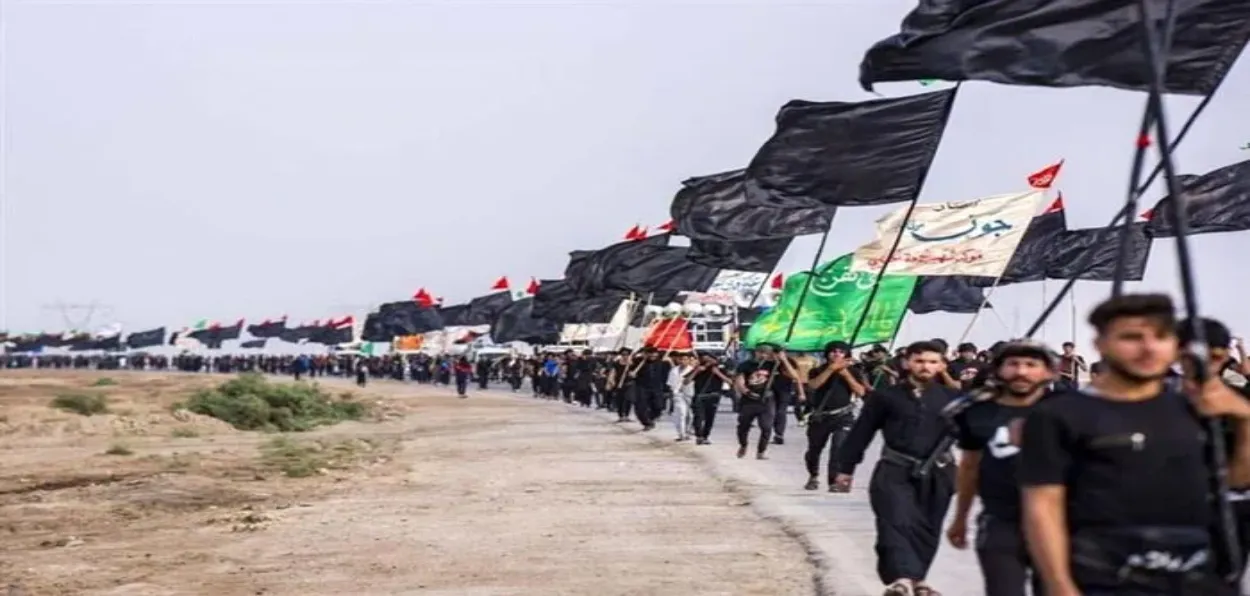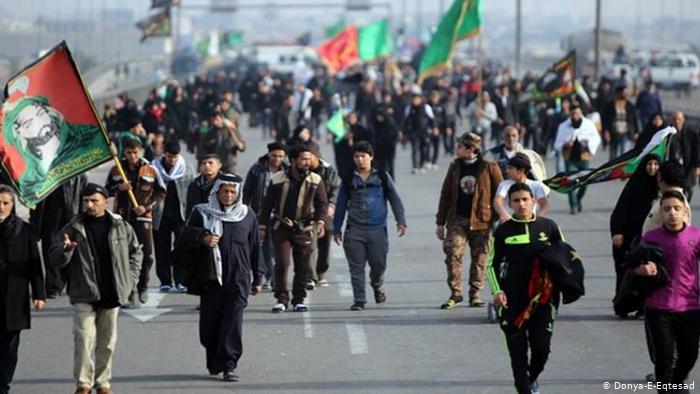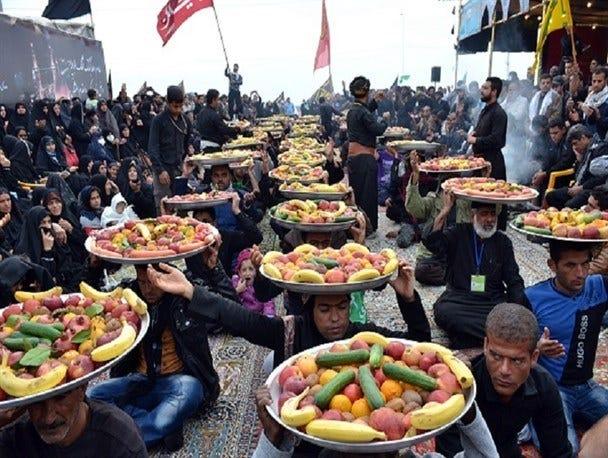
Eman Sakina
Every year, millions of Shia Muslims from across the globe converge on Iraq to mark the Arbaeen pilgrimage—a profound spiritual journey that commemorates the 40th day after the martyrdom of Imam Husain ibn Ali, grandson of Prophet Muhammad. The Arbaeen walk from Najaf to Karbala, a distance of about 80 kilometres, is not only a religious act but a grand exhibition of devotion, brotherhood, and hospitality.
Among the most awe-inspiring sights during this pilgrimage is the 70-kilometer-long tablecloth—an enormous stretch of food service set up along the pilgrimage route, where pilgrims are fed free of charge. This table, known locally as "Sufra" or "Mawākib hospitality", is not organized by any single government or institution. Instead, it is the result of thousands of individual efforts, driven by love for Imam Hussain and his message of sacrifice, justice, and dignity.
To understand the motivation behind such a massive effort, one must first understand the significance of Arbaeen. After the tragedy of Karbala in 680 AD, where Imam Husain and his companions were brutally martyred by the army of Yazid, his surviving family members were taken captive. Forty days after the martyrdom, some of the family members and companions returned to the grave of Imam Husain in Karbala, and this became the seed of the Arbaeen tradition.
Today, Arbaeen has become the largest annual gathering of humans on Earth, with over 20 million pilgrims participating in recent years. These pilgrims walk on foot from various parts of Iraq, especially from Najaf to Karbala, and are sustained entirely by volunteer efforts, particularly by Iraqis who treat each pilgrim as an honoured guest.
 The pilgrims of Arbaeen walk
The pilgrims of Arbaeen walk
The concept of a "70 km long tablecloth" is symbolic, yet surprisingly literal. Along the Arbaeen route, especially the Najaf-Karbala corridor, there are continuous rows of food tents, stalls, and open buffets, serving meals 24 hours a day. These arrangements line both sides of the road, ensuring that no pilgrim walks even a few meters without being offered food, drink, or rest.
This setup includes:
Freshly prepared meals: Breakfast, lunch, dinner, and snacks, often cooked on the spot in massive cauldrons.
Beverages: Water, juices, tea, milk, and various local drinks.
Sweets and fruits: Local and imported fruits, Iraqi desserts, and dates.
Special dietary items: For the elderly, children, or people with specific needs.
Meals to-go: So, pilgrims can carry food as they walk.
The food and services are offered by "Mawākib"—volunteer groups or families that dedicate their resources and time to Arbaeen. Mawākib vary in size - from a small roadside tea stall run by a single family to massive tents serving 10,000 meals per day.
Over 14,000 Mawākib are registered each year, and many more operate informally. They are set up by people from across Iraq—villagers, city dwellers, business owners, labourers, and students.
Many Iraqis save money all year just to host pilgrims during Arbaeen.
Who Provides the Food?
 Locals carrying food for the pilgrims of Arbaeen Walk
Locals carrying food for the pilgrims of Arbaeen Walk
Mawākib also provide medical aid, resting areas, shoe repair, massages, and even Wi-Fi and mobile charging, laundry services. foot massage, lost and found tents, childcare centres, and language assistance booths for foreign visitors.
This decentralized system of hospitality is self-funded, self-managed, and spiritually motivated. Each group sees it as an honour and religious duty to serve the visitors of Imam Husain.
How it works:
Families and Mawākib committees begin collecting funds and supplies months in advance. Rice, oil, meat, spices, and other non-perishables are bought and stored. Equipment like stoves, large pots, plates, and utensils is readied.
Volunteers are recruited from families, friends, and neighbours. Local Agriculture and Donation Chains
Many farmers donate portions of their crops—rice, vegetables, fruits—to the Mawākib. Butchers and livestock owners offer animals for sacrifice, providing meat for stews like qeema and biryani.
International pilgrims and charities from Iran, Pakistan, Lebanon, and beyond contribute funds or resources.
Tents and mobile kitchens are transported to the pilgrimage route weeks in advance. Temporary kitchens are set up using gas stoves, wood fires, and mobile ovens. Water tanks, refrigerators, and cooling systems are installed where possible.
Food preparation begins early in the morning and continues late into the night. Teams of men and women cook in shifts to keep food constantly available. Hygiene, despite the scale, is taken very seriously with proper sanitation protocols.
No money accepted
Even if pilgrims insist on paying, they are gently turned away. Everything is done Fi Sabilillah—for the sake of Allah and in love for Imam Husain.
In an age where headlines often associate Iraq with conflict, the 70-kilometer tablecloth of Arbaeen tells a different story: one of unmatched generosity, spiritual resilience, and community cooperation on a scale unmatched anywhere on earth.
ALSO READ: Imam Husain’s martyrdom saved Islam
It is not just a logistical marvel, but a spiritual phenomenon—a living testament to the legacy of Imam Husain, who gave everything for truth, and whose memory inspires millions to give back in love and service.
